When the Past was Around is about universal experiences everyone can relate to, like being in a relationship with a terminally ill, violin-playing, half owl/half-man abomination.
You play as a young musician Eda, who spends the game attempting to sort through the memories she created with her feathery dead paramour. This takes the form of straightforward adventure game puzzling: watered plants sprout flowers, pesky birds are lured away with cake, on top of a smattering of very simple code-breaking (the couple appears to have had a fetish for four-digit combination locks).
There’s a pleasantly domestic focus to this: for example, you spend time trying to correctly brew a cup of tea or hunt down the detergent to wash a grubby towel. The repeated goal is to collect the items in thought bubbles floating over the characters’ heads. Grab ‘em and you receive a feather that unlocks the door to the next memory. Rinse and repeat five times and you’re done, likely in just over an hour.It’s the epitome of the chilled-out indie experience, with the puzzles providing minimal pushback without feeling like complete pushovers. Even better is that there’s a button that highlights interactable objects, a basic tool that a surprising amount of puzzle games don’t bother with. The game is also cursor driven and obviously primarily designed for PC, though it asks so little of you it’s only a little clunky with a controller.
If it were just the puzzles When the Past was Around wouldn’t be much to write home about, but the game is delivered by outright lovely hand-drawn art. The environments are crammed with ever-so-slightly exaggerated realism and the characters are personable and charismatic despite there being no dialogue. If you enjoyed Florence you’ll be right at home here.The quality of the art also helps make the whole Owlman thing work. The core of the story is empathising with Eda, but giving Owl a human face would define him much more clearly as a character and put up a barrier to that. After all, if he wasn’t your type you’d end up out of sync with the game. As an anthropomorphic owl, it’s easy to imprint whoever you want on him, making the emotional punch land with a bit more wallop.
The only area that lets the side down is the audio. Music plays a big role in the story and gameplay: both characters are violinists and several puzzles are based around musical notation. The problem is that the minimalist score is repetitive and, though we’re constantly told that Eda and Owl are great musicians, we don’t get the proof.It feels unfair to criticize it too much - the soundtrack is fine - but in comparison to the rest of the package, it’s the obvious weak link.
To properly appreciate this you’ve got to approach it on its own terms. Don’t come in expecting a full-on mental workout or a cavalcade of fiendishly difficult puzzles. A twisty dynamic plot full of stuff happening and witty dialogue this ain’t. This is a dreamy, meditative and melancholy Sunday afternoon game best enjoyed in a single sitting with a steaming pot of tea as your sidekick and some hankies if you’re vulnerable to schmaltz.
There’s a pleasantly domestic focus to this: for example, you spend time trying to correctly brew a cup of tea or hunt down the detergent to wash a grubby towel. The repeated goal is to collect the items in thought bubbles floating over the characters’ heads. Grab ‘em and you receive a feather that unlocks the door to the next memory. Rinse and repeat five times and you’re done, likely in just over an hour.It’s the epitome of the chilled-out indie experience, with the puzzles providing minimal pushback without feeling like complete pushovers. Even better is that there’s a button that highlights interactable objects, a basic tool that a surprising amount of puzzle games don’t bother with. The game is also cursor driven and obviously primarily designed for PC, though it asks so little of you it’s only a little clunky with a controller.
If it were just the puzzles When the Past was Around wouldn’t be much to write home about, but the game is delivered by outright lovely hand-drawn art. The environments are crammed with ever-so-slightly exaggerated realism and the characters are personable and charismatic despite there being no dialogue. If you enjoyed Florence you’ll be right at home here.The quality of the art also helps make the whole Owlman thing work. The core of the story is empathising with Eda, but giving Owl a human face would define him much more clearly as a character and put up a barrier to that. After all, if he wasn’t your type you’d end up out of sync with the game. As an anthropomorphic owl, it’s easy to imprint whoever you want on him, making the emotional punch land with a bit more wallop.
The only area that lets the side down is the audio. Music plays a big role in the story and gameplay: both characters are violinists and several puzzles are based around musical notation. The problem is that the minimalist score is repetitive and, though we’re constantly told that Eda and Owl are great musicians, we don’t get the proof.It feels unfair to criticize it too much - the soundtrack is fine - but in comparison to the rest of the package, it’s the obvious weak link.
To properly appreciate this you’ve got to approach it on its own terms. Don’t come in expecting a full-on mental workout or a cavalcade of fiendishly difficult puzzles. A twisty dynamic plot full of stuff happening and witty dialogue this ain’t. This is a dreamy, meditative and melancholy Sunday afternoon game best enjoyed in a single sitting with a steaming pot of tea as your sidekick and some hankies if you’re vulnerable to schmaltz.


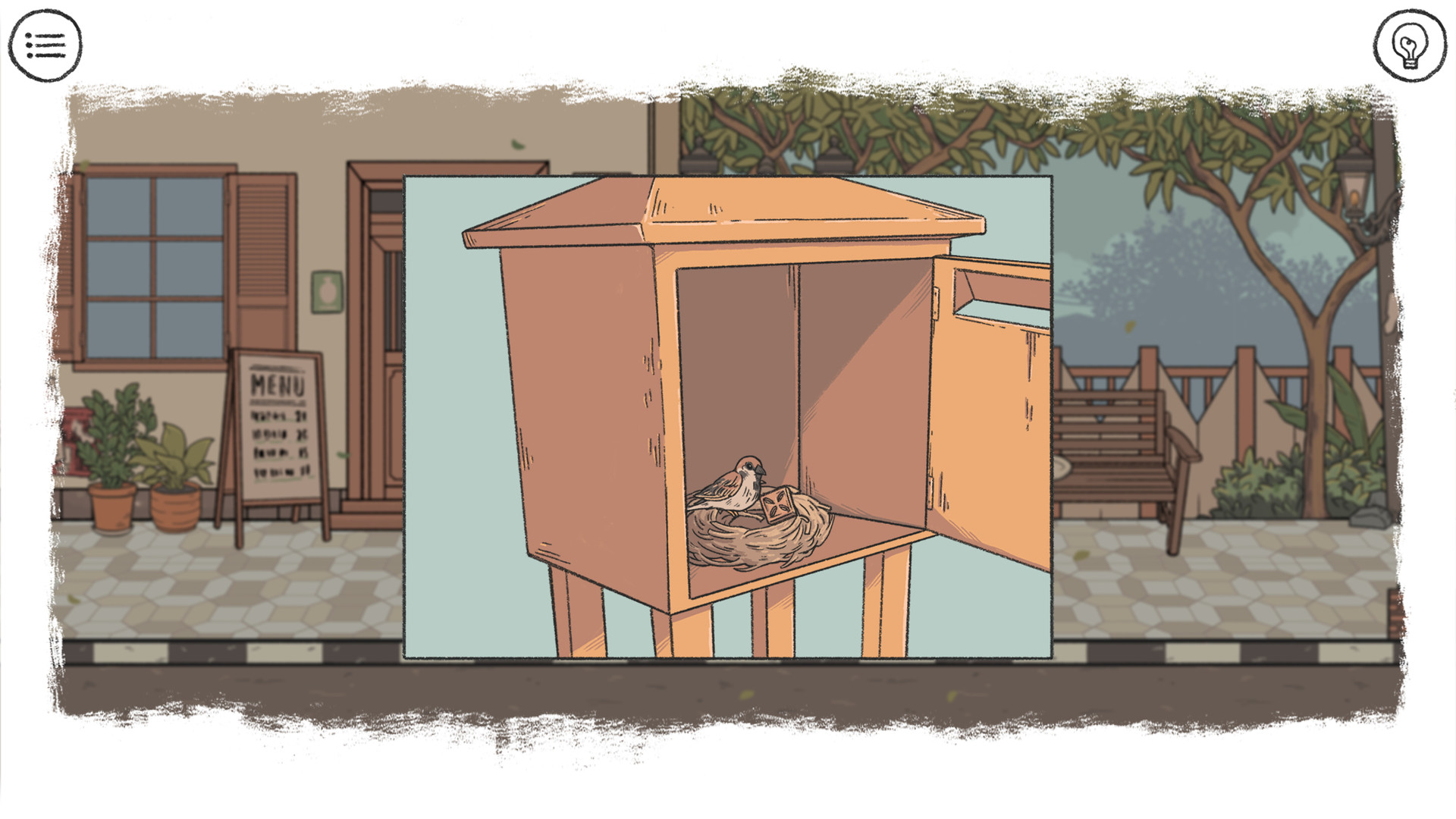
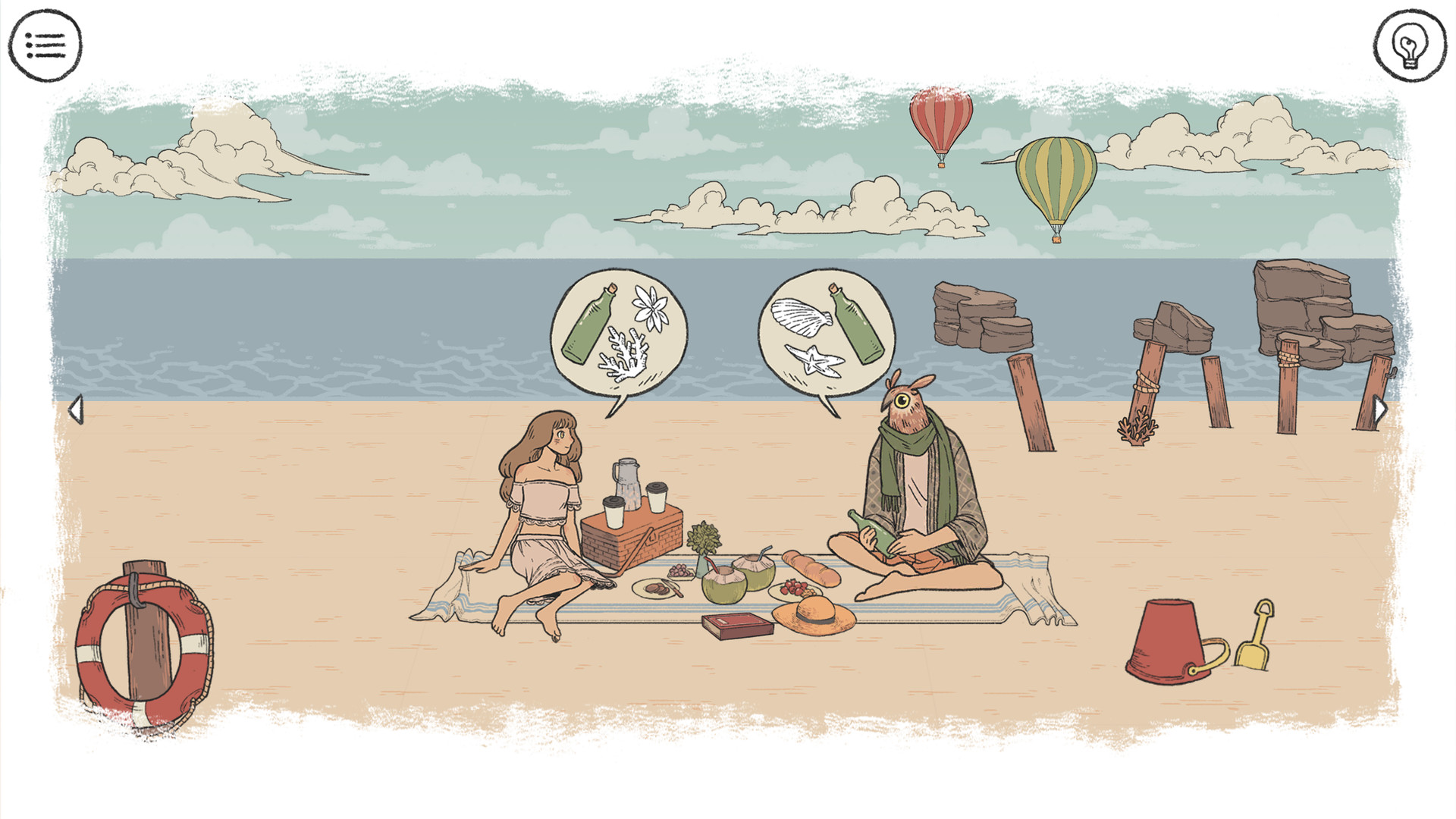
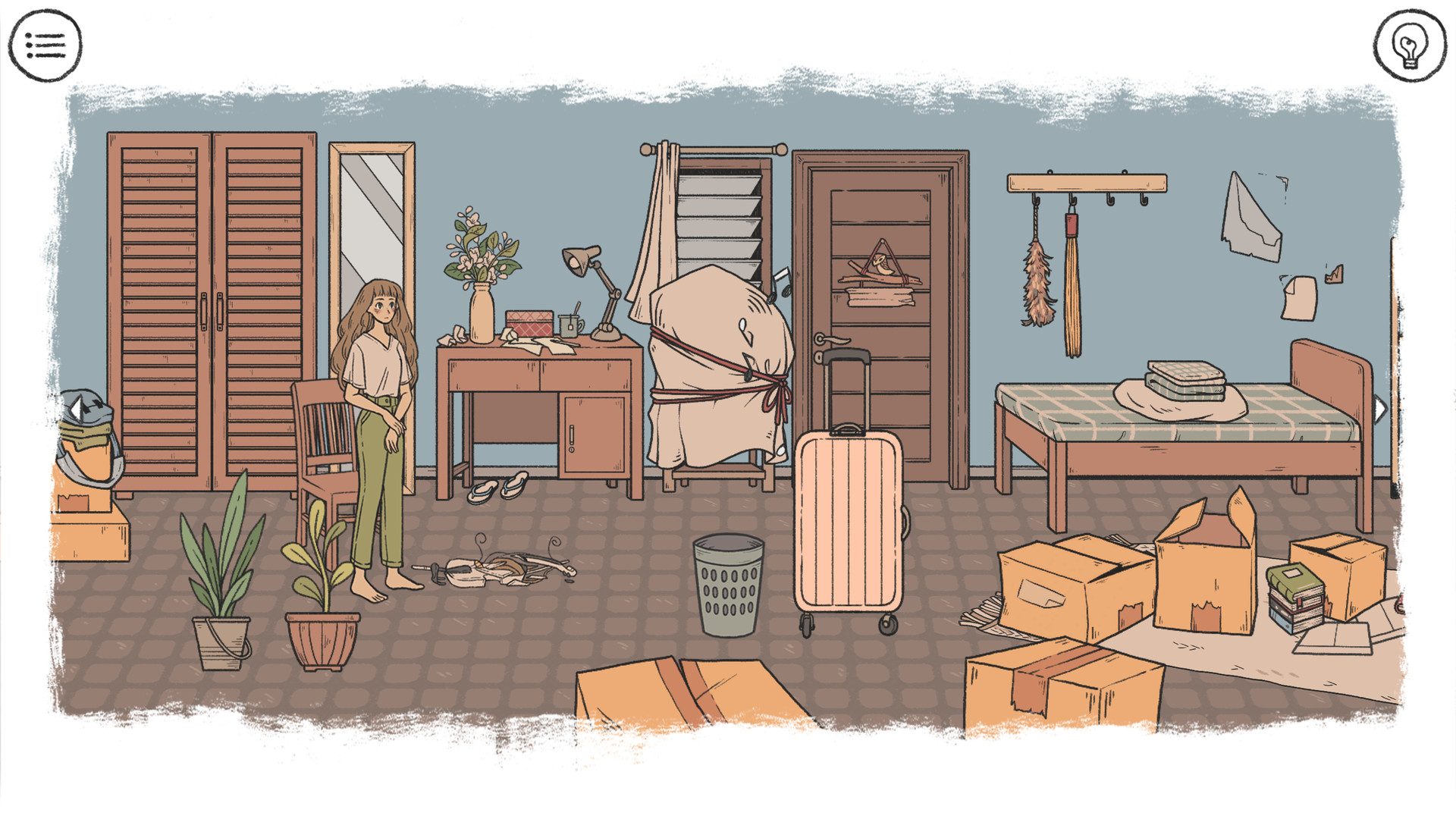
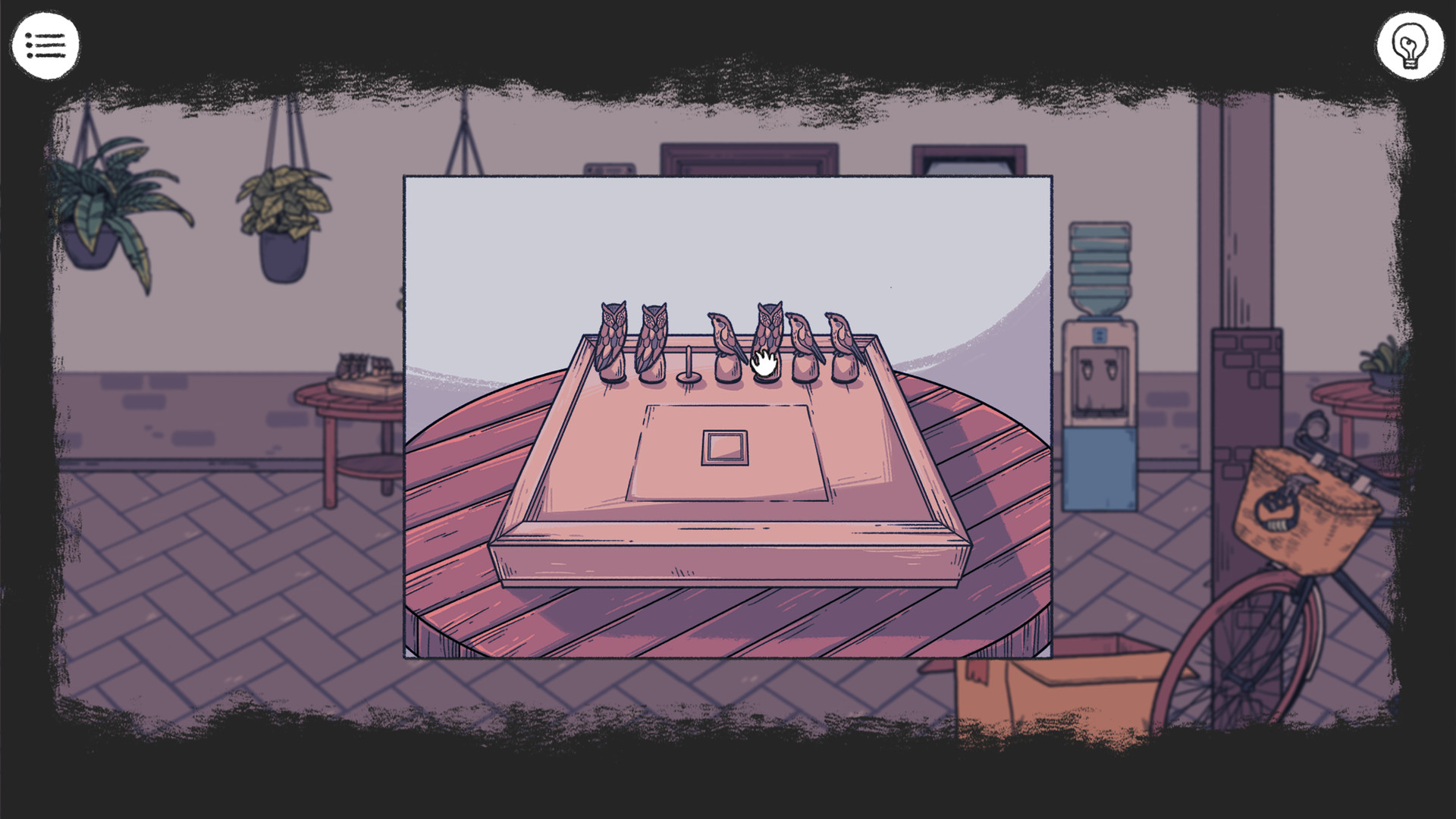

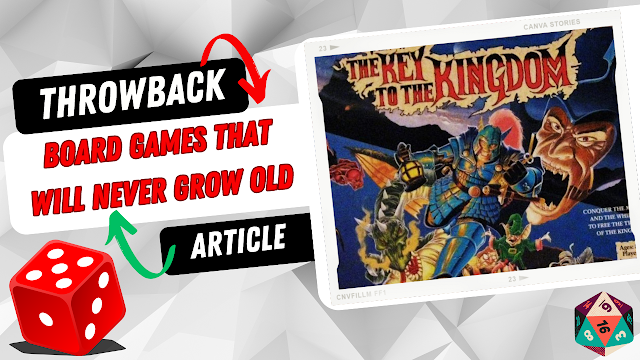


No comments:
Post a Comment
Like what you see in the Games Freezer?
Why not tell us what you think with a few well-chosen comments? :)